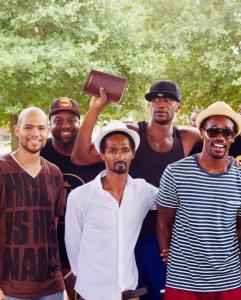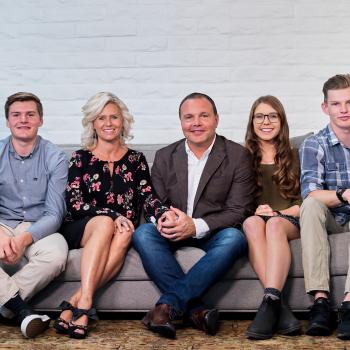“Both, without a doubt.”
“Exactly, yes.”
“Politicians use the affiliations to get into a different base of people to use. The people use the politicians to get things enacted like…not being able to buy liquor on Sundays. It used to be whole sections of grocery stores you couldn’t go into.”
“Still can’t.”
“Some counties where you can’t even buy liquor at all.”
“You didn’t used to be able to buy cat litter on Sundays. They relaxed that.”
“What?”
“Yes, yes.”
“The Bible Belt…technically you could only buy food or medical oriented things. South Carolina, when I lived there was a lot the same way that was 20 years ago here.”
These post-Christian participants repeatedly found the political shenanigans of the “religious right” frustrating if not downright scary. One Austin man found evangelical Christians more frightening than the dictators of North Korea and Iran:
“…As far as what scares me about groups of people in the world that have the potential to do harm, you have radical Muslim extremists and Evangelical Christians. Then there’s a big drop off and you get into maybe military dictators, North Korea and Iran. Then you have everybody else slowly falling down there. But from everything, and I watch the news all day every day at work, I read a lot. As far as groups that scare me more than a little, and cause to happen that I don’t want to have happen.”
When one group member countered that evangelical Christians aren’t out to blow up the world, another argued that “They have an awful lot of power and they’re using it in a way that I don’t think any group should be using it.”
“In what way?”
“In terms of imposing their view of the world on the world, on everybody else. There’s not other groups out there that are trying to impose their views…. Just steamrolling over everybody. Again that’s extreme and that’s the radical people in the group.”
“Which radical people?”
“High level Republican leaders,” “Pat Robertson,” “Westboro Baptist,” and “Jerry Falwell.”
Seeing Ghosts
Hearing these exchanges, I often wondered if I had flipped to the “WE HATE FOX NEWS” channel. The Austin guys apparently had watched an assortment of talking head cultural commentators and assumed they determined the agenda of the entire Christian community. We asked who worries these guys, and they say, “Jerry Falwell.” And I’m thinking, “How long as he been in heaven with Jesus now?”
If you weren’t around or not paying attention during the 1980 United States presidential elections, Jerry Falwell epitomized what transpired during that era, when arguably a few men swayed American history and reshaped how people think about politics and religion for more than a generation. Falwell was one of the original leaders of the religious right and a co-founder of the Moral Majority, a political advocacy group organized to battle for conservative values.
James Robison was at ground zero of what became the religious right. In 1979, he was one of a handful of TV evangelists with a national audience. At a time when the issue of gay rights was grabbing public attention, Robison was known for daring Christians to “come out of the closet.” Following an on-air sermon where he quoted the first chapter of Romans—a passage that calls homosexuality sin—censors kicked him off a major Dallas TV station under what was known as the Fairness Doctrine of the Federal Communications Commission (FCC). While you might not like what Robison said, you should get First Amendment chills he was not permitted to say it.












